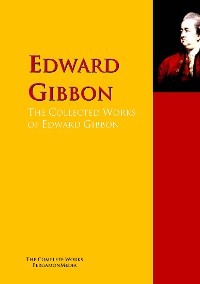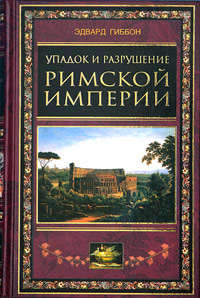 полная версия
полная версияPrivate Letters of Edward Gibbon (1753-1794) Volume 2 (of 2)
76
Lord Sheffield was sitting on a Select Committee appointed to inquire into frauds committed on the revenue.
77
Early in 1781 two committees of the House of Commons were appointed to inquire into the affairs of India. One, a Select Committee, considered the best means of governing the British possessions in the East Indies; the other, a Secret Committee, inquired into the causes of the war in the Carnatic, and the condition of the British possessions in those parts. On April 9, 1782, the Lord Advocate, Henry Dundas, the chairman of the Secret Committee, moved that the reports of that committee be referred to a committee of the whole House. On April 25 he laid three sets of resolutions on the table. The first set, which were postponed, related to the general misconduct of the Company; the second set, condemning the administration of the Presidency of Madras, was voted; the third, containing criminal charges against Sir Thomas Rumbold, the President of the Madras Council, was also voted. On these two sets of resolutions was founded a Bill of pains and penalties (April 29) against Rumbold; but on July 1, 1783, a motion was carried to adjourn the further consideration of the Bill till October 1. The proceedings, therefore, fell to the ground and were not resumed.
Meanwhile, the resolutions as to the general misconduct of the Company were severally agreed to by the House on May 28, 1782. On them was founded a resolution, calling on the directors to remove Warren Hastings, Governor-General of India, and William Hornsby, President of the Council of Bombay. This resolution being carried, the directors passed an Order of Recall; but the order was rescinded on October 31 by the General Court of Proprietors.
Side by side with these proceedings, the reports of the Select Committee were also considered. On April 24, 1782, their chairman, General Smith, presented a series of resolutions which were carried, and on them an address was presented to the king to recall Sir Elijah Impey, Chief Justice of the Supreme Court of Bengal.
On November 20 and 26, 1783, Fox brought in two India Bills: (1) vesting the affairs of the Company in the bands of seven commissioners; (2) providing for the better government of the territorial possessions of the Company. The first Bill passed the House of Commons on a division of 208 to 102, after long debates, in which the House frequently sat till 5 a.m., on December 8, 1783, and was carried up to the House of Lords on December 9. The first reading took place on December 9, and the second reading on December 15. A motion for adjournment was carried against the ministers by 87 to 79, and on December 17 the Bill was rejected by 95 to 76.
On the following day the king called upon the Secretaries of State to resign their seals; and on the 19th the rest of the Cabinet were dismissed.
The new Ministry was thus composed: —
William Pitt First Lord of the Treasury and Chancellor of the Exchequer.
Earl Gower President of the Council.
Lord Thurlow Lord Chancellor.
Lord Sydney} Secretaries of State.
Marquis of Carmarthen }
The Duke of Rutland Lord Privy Seal.
Lord Howe First Lord of the Admiralty.
Duke of Richmond Master of the Ordnance.
Henry Dundas Treasurer of the Navy.
The first seven on the list formed the Cabinet.
The Duke of Dorset replaced the Duke of Manchester as Ambassador at Paris, and Daniel Hailes succeeded Anthony Storer as Secretary to the Legation.
Lord Temple, the "stormy petrel" of politics, accepted office as Secretary for the Foreign Department on December 19, but resigned on December 22.
78
The Hon. George Augustus North (afterwards Lord Guilford) and Lord Lewisham were two of the seven commissioners named in Fox's India Bill.
79
This letter, as printed here, was written by Edward Gibbon to his stepmother; a similar letter, in which some of the same phrases are repeated, is printed in Lord Sheffield's edition of Gibbon's Miscellaneous Writings (vol. ii. pp. 340-344), addressed to his aunt, Miss Catherine Porten.
80
His aunt, Miss Porten, and his stepmother.
81
His aunt, Miss Hester Gibbon.
82
William Woodfall, formerly assistant editor of the Public Advertiser, was at this time editor of the Morning Chronicle. He was called "Memory Woodfall" from his accuracy in remembering the speeches in Parliament, of which no notes were then allowed to be taken. He was, it is said (Auckland Correspondence, vol. iii. p. 165), for many years paid £400 a year, "for giving the speeches of Mr. Fox and Mr. Sheridan much more at length and better than he did those of Mr. Pitt and Mr. Dundas." He was afterwards editor of a paper called The Diary, which failed. He died in 1803. His brother, Henry Woodfall, published the Letters of Junius.
83
The fall of the Coalition. See note to Letter 487.
84
The long delay in accepting the Coalition Cabinet. See note to Letter 487.
85
The House of Commons, after deferring the third reading of the land-tax Bill, and addressing the king against dissolving Parliament, adjourned from December 26 to January 12, 1784.
86
As soon as Parliament reassembled after the Christmas recess (January 12, 1784), the House of Commons resolved itself into a committee on the state of the nation in order to prevent an immediate dissolution. Two resolutions were carried: (1) that to pay out public money before the same was appropriated by Act of Parliament was a high crime and misdemeanour; (2) that the Mutiny Bill be postponed till February 23. It was further resolved, that an Administration, which commanded the confidence of the House, was peculiarly necessary in the present situation of the kingdom, and that the late ministerial changes had been preceded and accompanied by reports and circumstances which alienated the confidence of the House. On January 14, Pitt proposed his India Bill, which was rejected (January 23) by 222 to 214. On January 16 a resolution was carried, by 205 to 184, that the continuance of the present ministers in office was "contrary to constitutional principles and injurious to the interests of his Majesty and his people."
87
Dunning's motion, here referred to, was proposed April 24, 1780, and rejected by 254 to 203.
88
On December 22, 1783, Mr. Bankes, M.P. for Corfe Castle, an intimate friend of William Pitt, assured the House that the Government did not intend to advise the king to dissolve or prorogue Parliament, and that the Chancellor of the Exchequer, if such advice were offered, would oppose it, and, if it were accepted, would resign.
89
On January 16, 1784, Mr. Powys, M.P. for Northamptonshire, proposed a compromise by a coalition between the contending parties. Fox, however, declared that no compromise was possible till Pitt had resigned. The idea of a compromise was taken up on the 20th by the "country gentlemen." Stormy scenes took place on January 23, when Pitt declined to make any statement as to the advice which he might offer the king. But on Saturday, January 24, he stated that, while refusing to pledge himself further, the House should not be dissolved till it had met on Monday, the 26th. Advantage was taken of this statement to call a meeting, attended by seventy members of the "country gentlemen" party, at the St. Alban's Tavern, to consider the possibility of compromise on the basis of a "Broad Bottom administration." The plan proved futile, and was abandoned February 18. The proceedings closed with a dinner given to the seventy members at Carlton House by the Prince of Wales on March 10, 1784.
90
An address to his Majesty was presented on February 25, 1784, asking the king to take measures for the formation of such an united administration as the House of Commons had declared to be necessary. The king replied (February 27) that he did not think the dismissal of his present ministers would promote such union. A second address, asking the removal of the present ministers, was carried (March 1) by a majority of twelve, and presented March 4. The king's answer was practically a repetition of his former reply. A representation on the affairs of the nation, addressed to the king, was carried by 191 to 190 on March 8, and, with this last effort, the opposition subsided. The Mutiny Bill passed without a division on March 10, and on March 25 Parliament was dissolved.
91
Upwards of one hundred and sixty members lost their seats, and of these almost all had supported the Coalition of Fox and North. Among "Fox's Martyrs" was Lord Sheffield. Sir Sampson Gideon, afterwards Lord Eardley, and Mr. John Wilmot were elected for Coventry, the seat previously held by Lord Sheffield and Mr. Conway.
92
Teague is the Irish servant of Hermes Wouldbe in Farquhar's play of The Twin Rivals.
93
Lady Charlotte Herbert, daughter of Lady Pembroke (formerly Lady Elizabeth Spencer), was born July, 1773, and died in April, 1784.
94
Prince Henry of Prussia, brother of Frederick the Great, was one of the most brilliant soldiers of the day. His relief of Breslau (1760) and victory at Freyberg (1762) were turning-points in the Seven Years' War. In the War of Bavarian Succession he maintained his position in Bohemia against the Austrian troops (1778-9). He was offered the crown of Poland in 1764, and in 1784 had been envoy at the court of Louis XVI. He died in 1802.
95
His picture by Sir Joshua Reynolds.
96
The Constitution of 1782 had not satisfied Ireland. The cry was raised for parliamentary reform, and for the extension of the franchise to Roman Catholics. Napper Tandy and his friends held meetings with French emissaries; and an attempt was made to convene a Congress of three hundred representatives at Dublin in October, 1784, backed by the volunteers. The Lord Lieutenant, the Duke of Rutland, acted with vigour, and the proposed Congress collapsed. Lord Sheffield had taken part in the proceedings against the magistrates of Roscommon and Leitrim, who had called the meetings of representatives and signed the resolutions in favour of parliamentary reform during the summer of 1784.
97
Jacques Necker (1734-1804), appointed Director-General of Finance in 1777, published, in 1781, his Compte Rendu. In the same year he was compelled to resign his office. In 1784 he published his Administration des Finances. He was recalled to office as Director of Finances in August, 1788, was dismissed July 11, 1789, recalled July 16 in the same year, and finally retired in September, 1790. "M. Necker est parti. Il a eu une si belle peur de la menace d'être pendu, qu'il n'a pu résister à la tendresse de sa vertueuse épouse qui le pressoit d'aller aux eaux." Madame Elisabeth à Madame de Bombelles, Sept. 6, 1790 (Feuillet de Conches, vol. i. p. 348). Necker's work, Sur l'Administration de M. Necker, par lui-même, was published in 1791. His daughter mentioned here was afterwards Madame de Staël.
98
Lord Sheffield published, in 1785, his Observations on the Manufactures, Trade, and Present State of Ireland.
99
Sir Willoughby Aston, the last baronet, married, in 1772, Lady Jane Henley, sister of Lord Northington, and died in 1815, without children.
100
The Hon. John Hampden Trevor, second son of Lord Hampden, was British Envoy at the Court of Turin, 1783-99. He married, in 1773, Harriot, only daughter of the Rev. Daniel Barton, Canon of Christ Church.
101
Lady Clarges (née Skrine) was the widow of Sir Thomas Clarges, third baronet, M.P. for Lincoln, who died in 1783.
102
Second Lord Northington, formerly M.P. for Hampshire.
103
Lord Spencer, who succeeded his father as second Earl Spencer in 1783, married Lady Lavinia Bingham, eldest daughter of the first Earl of Lucan.
104
The Right Hon. John Foster, Lord Oriel (1740-1828), Chancellor of the Exchequer in Ireland (1784), Speaker of the Irish House of Commons (1785-1800), was the author of the Irish Corn Law of 1784, the founder of the National Bank, and closely connected with Lord Sheffield by their common interests in commercial and financial questions. He was elected Speaker August 15, 1785.
105
Commissioners had been appointed to draw up a scheme for regulating the commercial intercourse of Great Britain and Ireland. Pitt's eleven propositions for the development of Irish Trade, in their original form, were practically rejected by the Irish Parliament in February, 1785. Remodelled, and increased to twenty, they were laid before the English House of Commons in May, 1785, and a Bill based on them was read the first time in July. This Bill was then introduced into the Irish House on August 12; but it was carried by so small a majority (127 to 108) that it was abandoned.
106
The Emperor Joseph II., "à qui jamais rien n'a réussi," reigned 1780-1790. His attempted reforms in the Low Countries created a revolution against Austria; the two insurgent parties of the Statistes and Vonckistes, – the one conservative and aristocratic, the other commercial and resembling in their views the French Constitutionalists, – made common cause and expelled the Austrian governor, the Duke of Saxe-Teschen. "Vôtre pays," said Joseph, a few days before his death, to the Prince de Ligne, "m'a tué. La prise de Gand a été mon agonie; l'abandon de Bruxelles, ma mort."
107
Frederick II. of Prussia died August 17, 1786. He had recently endeavoured to mediate between the Republican party in Holland and the Stadtholder, who was, in 1786, deprived of the government of the Hague and of his military powers as captain-general. He had also, in 1778 and 1785, interfered to prevent Austria's designs upon Bavaria.
108
Lord Sheffield did not publish his Observations on the French Treaty and Commerce. [S.]
109
On August 18, 1787, the Right Hon. W. Eden (afterwards Lord Auckland) was appointed Ambassador Extraordinary and Plenipotentiary to the King of Spain; but he was at this time in Paris, assisting the Duke of Dorset in negotiating a Treaty of Commerce with France. His conduct in accepting from Pitt the mission to France was severely condemned by the old followers of Lord North. Among the numerous squibs which his action provoked, the following may be quoted: —
"A mere affair of trade t' embrace,Wines, brandies, gloves, fans, cambrics, lace;For this on me my Sovereign laidHis high commands, and I obey'd —Nor think, my Lord, this conduct base."Party were guilt in such a case,When thus my country, for a space,Calls my poor skill to Dorset's aid,A mere affair of trade!"Thus Eden, with unblushing face,To North would palliate his disgrace:When North, with smiles, this answer made:'You might have spar'd what you have said —I thought the business of your placeA mere affair of trade!'"110
In 1787 the Prince of Wales, after authorizing Fox to make a public denial of his rumoured marriage with Mrs. Fitzherbert, received an additional £10,000 a year, £161,000 to pay his debts, and £20,000 for the repair of Carlton House.
111
A Treaty of Commerce and Navigation between Great Britain and France was signed at Versailles on September 26, 1786, and a Supplementary Convention was signed between the same powers on January 15, 1787. Both treaties were signed on behalf of Great Britain by William Eden.
112
Jeanne Pauline Polier de Bottens, afterwards successively Madame de Crousaz, and Madame de Montolieu, was the daughter of the Pastor at Lausanne, and was descended from an ancient family in Languedoc which had emigrated at the time of the Reformation. She was a voluminous writer. One of her best-known works is a continuation of the Swiss Family Robinson. Madame de Genlis, who claims to have been the éditeur of Caroline de Lichtfield, tells the following story of Gibbon falling on his knees and proposing to Madame de Crousaz, afterwards Madame de Montolieu. She refused him. "M. Gibbon prit un air consterné, et cependant il restait à genoux, malgré l'invitation réitérée de se remettre sur sa chaise; il était immobile et gardait la silence. 'Mais, monsieur,' répéta Madame de Crouzas, 'relevez-vous donc.' – 'Hélas! madame,' répondit enfin ce malheureux amant, 'Je ne peux pas.' En effet, la grosseur de sa taille ne lui permettait pas de se relever sans aide. Madame de Crouzas sonna, et dit au domestique qui survint: 'Relevez M. Gibbon'" (Souvenirs de Félicie, p. 279). Madame de Montolieu, it should be added, stated that the anecdote was entirely without foundation (Rossel, Histoire Littéraire de la Suisse, vol. ii. p. 275).
The same story is told in verse by George Colman the younger in "The Luminous Historian; or, Learning in Love" (Eccentricities for Edinburgh, pp. 67-91).
Caroline, par Madame de * * *, was published at Lausanne in 1786. At Paris, in the same year, a new edition appeared, under the title of Caroline de Lichtfield, avec des corrections considérables. It was translated into English by Thomas Holcroft, and published by the Minerva Press. The Lausanne edition has on the title-page the following lines, which may allude to Gibbon: —
"Idole d'un cœur juste et passion du sage,Amitié que ton nom soutienne cet ouvrage;Regne dans mes écrits, ainsi que dans mon cœur,Tu m'appris à connaître, à sentir le bonheur."(Voltaire, Mélanges de Poésies.)113
Lord Sheffield had let his house in Downing Street to the Duchess of Gordon. "The Duchess of Gordon will dance my house in Downing Street down" (Lord Sheffield to William Eden, February 27, 1787: Auckland Correspondence, vol. i. p. 405).
114
"I went to London," writes Lord Sheffield to William Eden from Sheffield Place, on August 22, 1787, "for a few days to conduct the Gibbon to this place. The Gibbon is settled here till winter; he will reside with us in Downing Street in winter and spring. The three quartos will appear in the spring, but as to remaining in this country, he has not the slightest notion of it. I have not yet succeeded in infusing a proper political zeal into him" (Lord Auckland's Journal and Correspondence, vol. i. pp. 435, 436).
115
Charles Alexandre de Calonne (1734-1802) was Director-General of Finances from 1783 to 1787. By his advice the Assembly of Notables was convened on February 22, 1787. He laid before it the financial condition of the kingdom, and proposed, among other measures, a land tax, the taxation of the lands of the clergy, and, generally, the equalization of public burdens. So great was the clamour against him, that in April he resigned and took refuge in England. "I am entertained," writes Lord Sheffield to William Eden, November 2, 1787, "with the reception Calonne meets with in London. Lately he was the most terrible peculator" (Auckland Correspondence, vol. i. p. 444). He was succeeded by Cardinal de Brienne, Archbishop of Toulouse, afterwards Archbishop of Sens.
116
Wilhelm de Severy, the son of Gibbon's friends at Lausanne, had, at his suggestion, paid a visit to England.
117
John Gibbon, the herald, was Bluemantle Pursuivant at Arms, 1671-1718. He died August 2, 1718.
118
M. Wilhelm de Severy.
119
Vols. iv., v., and vi. of the Decline and Fall were published in April, 1788.
120
The preface to the last three volumes of the Decline and Fall of the Roman Empire contained the following eulogium on Lord North: "Were I ambitious of any other Patron than the public, I would inscribe this work to a Statesman, who, in a long, a stormy, and at length an unfortunate administration, had many political opponents, almost without a personal enemy; who has retained, in his fall from power, many faithful and disinterested friends; and who, under the pressure of severe infirmity, enjoys the lively vigour of his mind, and the felicity of his incomparable temper. Lord North will permit me to express the feelings of friendship in the language of truth; but even truth and friendship should be silent, if he still dispensed the favours of the Crown."
121
Lady Sheffield's lapdog.
122
"We were kept in London about twelve days by Mr. Sheridan's speeches. One day would have sufficed me, who have heard many long speeches: but the ladies rebelled, the Gibbon supported them, and thus we were detained till towards the middle of June" (Lord Sheffield to William Eden, July 29, 1788: Lord Auckland's Journal and Correspondence, vol. ii. p. 219).
123
The trial of Warren Hastings began in Westminster Hall on February 13, 1788. Sheridan's speech on the Begums of Oudh was delivered on June 3, 6, 10, and 13. The trial was adjourned on June 14 till the following session. "Mr. Sheridan," writes Horace Walpole, June 5, 1788, "I hear, did not quite satisfy the passionate expectation that had been raised; but it was impossible he could, when people had worked themselves into an enthusiasm of offering fifty – ay, fifty guineas for a ticket to hear him." Macaulay's account of Sheridan's knowledge of stage-effect, and of his sinking back, "as if exhausted, into the arms of Burke," is based on this letter of Gibbon. Sir Gilbert Elliot, however (Life and Letters, vol. i. pp. 206-219), gives a different account. "Burke caught him in his arms as he sat down, which was not the least affecting part of the day to my feelings, and could not be the least grateful testimony of his merit received by Sheridan. I have myself enjoyed that embrace on such an occasion, and know its value." In his speech, as reported in the Morning Chronicle for June 14, 1788, Sheridan said that "nothing equal in criminality was to be traced either in ancient or modern history, in the correct periods of Tacitus or the luminous page of Gibbon." The story, told by Moore in his Memoirs of Sheridan, that the orator really used the word "voluminous," is repudiated by Mr. Fraser Rae (Sheridan, vol. ii. p. 69).
124
C. J. Fox.
125
In 1788, on a by-election caused by Lord Hood's acceptance of office as one of the Commissioners of the Admiralty, Lord John Townshend won the seat against Hood. In Bond Street there was a battle between Lord Hood's sailors and the Irish chairmen and butcher-boys. Several were killed and wounded.
126
Charles James Fox married Elizabeth Bridget Cane, otherwise Mrs. Armitstead, at Wyton, Huntingdonshire, on September 28, 1795. She survived her husband. In 1799, on his fiftieth birthday (January 24), Fox addressed to her the following lines: —
"Of years I have now half a century past,And none of the fifty so blessed as the last.How it happens my troubles thus daily should cease,And my happiness thus with my years should increase,This defiance of nature's more general lawsYou alone can explain, who alone are the cause."127
Sylvester Douglas, afterwards Lord Glenbervie (1743-1823), who married, in September, 1789, Catherine, eldest daughter of Lord North. He was educated at Leyden as a doctor, a circumstance to which Sheridan alludes in the lines —









